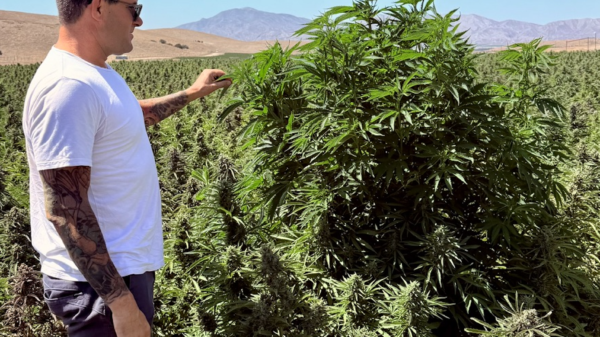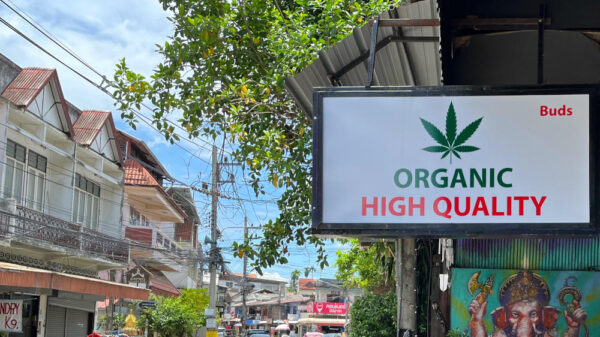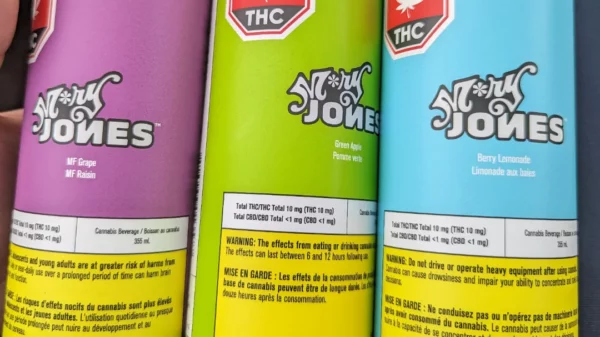After a four-and-a-half-month delay, the world’s biggest weed company said it’s releasing two more infused beverages into the Canadian market.
In a Tuesday update, Canopy Growth (TSX: WEED) said Canadians can expect to see its Houseplant Grapefruit and Deep Space branded weed drinks on provincial e-commerce channels in the coming weeks.
The two new offerings follow the company’s first wave of ready-to-drink infusions — Houdstooth & Soda and Bakerstreet & Ginger — both shipped under its Tweed brand in March and April.
The industry giant originally unveiled 13 weed drinks last October when the cannabis 2.0 segment first became legal in Canada. At that time, the company said it would have 32 second-phase products — including drinks, chocolates and vapes — on the market by the end of 2019.
But Canopy revealed in January it had to delay the launch of its drink products “due to issues scaling up its beverage production facility,” located near its headquarters in Smith Falls, Ontario.
Read more: From ‘Deep Space’ to ‘Beans & Bud’: Canopy Growth unveils 16 cannabis-laced drinks and chocolates
Read more: Canopy launches it first THC-infused drink nationwide
The Canadian producer invested heavily in developing cannabis beverages since Corona beer maker Constellation Brands, Inc. (NYSE: STZ) made a $5 billion investment in Canopy in August 2018. The company built a the 125,000-square-foot bottling facility it says can churn out more than 5 million weed drinks a month.
Under the Houseplant brand, which is backed by comedy star Seth Rogen, the new grapefruit option will contain 2.5 milligrams of THC.
That aligns with Canopy’s strategy of targeting novice cannabis users with the majority of its beverages containing lower dosages of the psychoactive ingredient.
The Deep Space product, however, is a smaller, more potent option that contains 10 milligrams of THC, the highest amount allowed under Health Canada’s rules per edible or drink package.
“We are proud to see the early responses to our infused beverages,” CEO David Klein said in a statement. “Our beverage innovation team took a flavour-first approach with our drinks, and the first four offerings to hit the market demonstrate the range of our portfolio, with flavour profiles that will satiate our consumers’ palates.”
Klein says Canopy still expects infused beverages to be a game-changer for the industry.
Deloitte market researchers have forecast the Canadian 2.0 product market will be worth $2.7 billion annually, and the beverage category will be worth $529 million.
Canopy’s other 2.0 strategies and value-brand play
The research firm expects edibles to lead all segments to bring in $1.6 billion.

Tokyo Smoke Go (CNW Group/Canopy Growth Corporation)
Canopy also said it has released four cannabis-infused chocolates in early 2020, which they say “have been a hit with consumers.”
As for vape pen products, the company said it’s introduced batteries, pods and two of its 510-cartridge models since early 2020. And its new premium Tokyo Smoke vape products, that include a sativa-dominant Go and indica-dominant Pause branded option, will be released shortly.
Canopy notes all its vape pods contain only cannabis distillate and terpenes, and are free of polyethylene glycol, vegetable glycerin or vitamin E acetate, a dangerous additive when heated and consumed.
In addition to the 2.0 products, the producer recently launched its own value cannabis brand.

Image via Société québécoise du cannabis
Similar to other major Canadian weed companies, Canopy started to sell two separate 28-gram bulk products — Twd. 28 Sativa and Twd. 28 Indica — to compete with a still-thriving black market.
While the two low-cost options aren’t currently available online in major provinces like Ontario, B.C. and Alberta, they’re listed on Quebec’s digital cannabis portal for $154.80 or $5.53 a gram.
“We are extremely proud of everything we’ve accomplished so far in 2020,” Klein said. “Despite challenging circumstances both at home and around the globe, our production teams and dedicated staff have worked tirelessly to bring these innovative new products to consumers.”
In other Canopy news, two of its top executives have resigned from the company, according to Marijuana Business Daily.
Dave Bigioni, chief commercial officer of recreational cannabis, has left the firm, along with chief operating officer Andre Fernandez.
Read more: New round of Canopy layoffs brings total close to 1,000
Top image via Canopy Growth
jared@mugglehead.com
@JaredGnam














